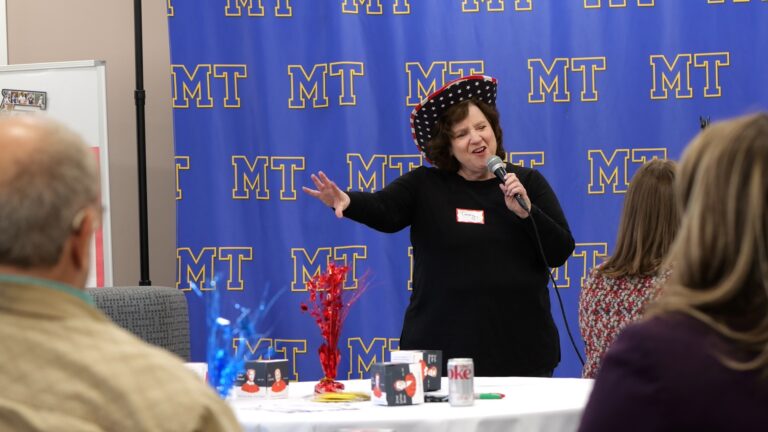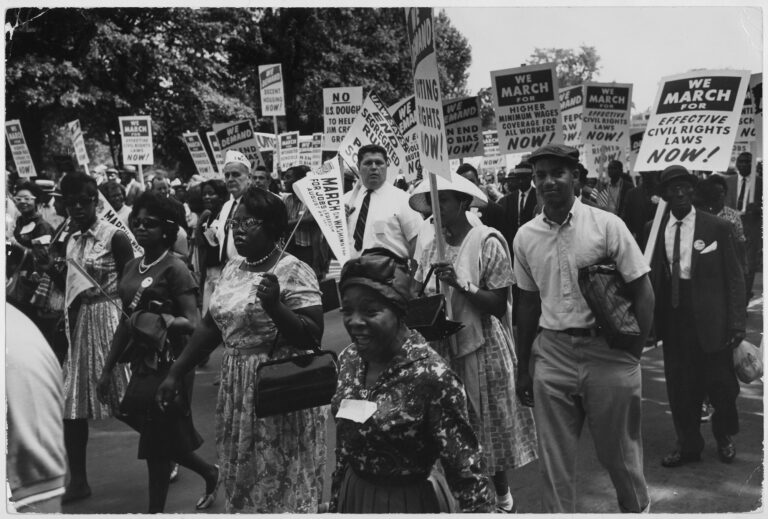
Special topics courses offer more opportunities for Clemente students
The Clemente Course in the Humanities offers a transformative educational opportunity for adults facing economic hardship and adverse circumstance. Since 2020, Mass Humanities has created special courses for past Clemente participants to earn additional credits from Bard College and build skills that amplifies their voices in their communities. Three courses are available this summer.
Archiving as Activism
May 23 – June 29
This course introduces students to the connection between archives and activism in Massachusetts, focusing on connecting what we learn and applying it to civic engagement/activist opportunities in our local communities. We will be looking at archival documents on the Combahee River Collective’s first of a series of Black feminist retreats in the 1970s, which was held in South Hadley, and the ways in which they established a methodology and rationale for curating an archive so participants could work from a shared body of knowledge. Students in this class will be introduced to local archives including the Sexual Minorities Archive (Holyoke), The National Black Doll Museum (online), Dora Robinson’s Liberation Collection (Springfield), and A History of Domestic Work and Worker Organizing (online).
With an eye to the future of the bill to establish a new Black heritage museum in Springfield, which would expand on current efforts to make visible local Black histories, this course introduces frameworks for thinking about the importance of archival objects (written, visual, aural, material, etc.) for historicizing and marking paths toward civic change. The course will also feature guest speakers to discuss the archive process, the ethics of interviewing human subjects, the politics of the archive, and the ephemeral aspects of grassroots organizing and the importance of documentation. The course will culminate in a video project where students can either contribute their own accounts/narratives, interview someone, or present an object lesson.
Application: Click Here
Instructor: Anna-Claire Simpson, PhD Candidate
Remote Course, Monday and Wednesday evenings, 6:30-8:00pm
May 23 – June 29
1 Credit Course
American Transcendentalism on the Ground, Then and Now
May 24 – June 30
This special topics course will offer you the opportunity to become more acquainted with the Transcendentalist tradition, which was born and thrived in Concord, MA, during our country’s antebellum period. You are also invited to apply that knowledge to today’s most pressing civic issues creatively and performatively. Led by Ralph Waldo Emerson and Henry David Thoreau, Transcendentalism is considered America’s first great intellectual tradition and it offered a rich foundation for its leading figures to speak out against American slavery, the displacement of indigenous peoples, social conformity, outdated educational methods, and our growing separation from nature.
Application: Click Here
Prof. Daniel McGloin
Remote Course, Tuesday and Thursday evenings, 6:30-8:00pm
May 24 – June 30
1 Credit Course
Frederick Douglass and the Struggle Against Slavery in Massachusetts
July 12 – Aug 16
In 1847, Frederick Douglass arrived in Springfield, Massachusetts to meet with John Brown, a man who would go on to become one of the most celebrated and demonized radical abolitionists in US history. Having lived a freeman for nearly a decade, Douglass arrived in Springfield after it had already become an important crossroads for abolitionists who travelled north from New York City to Hartford up into Vermont, as well as those who moved east-west from Boston to Albany and on to Buffalo, New York. Springfield, then, is the site where prominent abolitionists who as well as other less well-known Americans took up the struggle against slavery in Massachusetts.
This course explores the history of the struggle against slavery by focusing on the local, national, and international dimensions of the movement through the lives of people like Frederick Douglass, John Brown, Sojourner Truth, and Elizabeth Freeman, all who lived in Massachusetts. In addition, the course will acquaint students with ordinary people who chose to put their time, risk their lives, and dedicate their hearts and minds toward ending slavery and racial prejudice.
Application: Click Here
Instructor: Ousmane Power-Greene, PhD
Remote Course, Tuesday and Thursday evenings, 5-6:30pm
July 12 – Aug 16
1 Credit Course
For more information on the Clemente Course, contact Gina Ocasion at gocasion@masshumanities.org.




